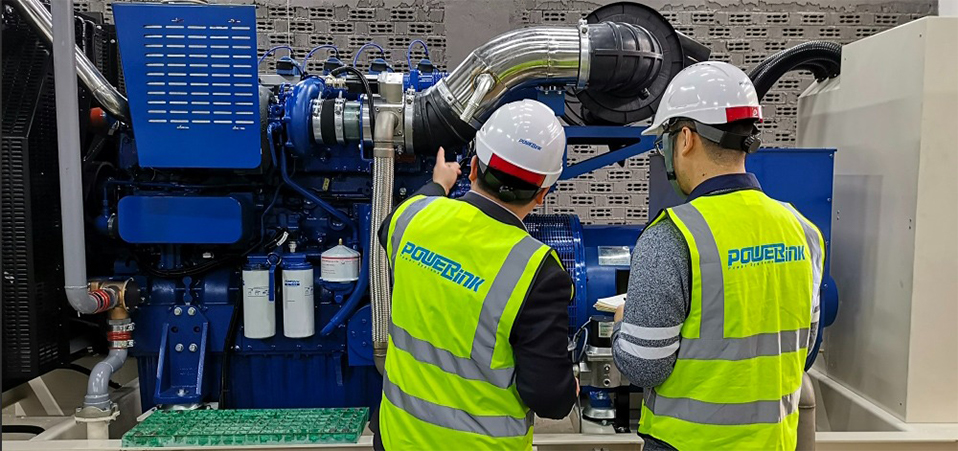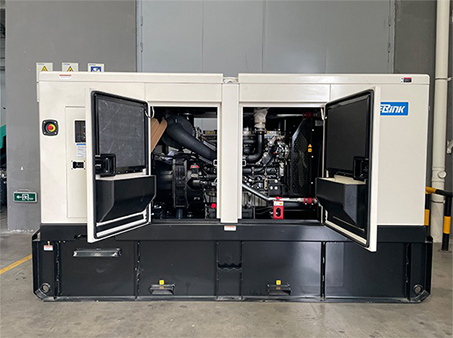Diesel generators are a reliable and efficient electrical power solution, often used as backup or back-up power for homes and businesses. Diesel generators are highly efficient and can run for extended periods of time without refueling. They are also relatively low maintenance, making them a popular choice for backup power.
In this blog post, we’ll cover the basic principles of operation of a diesel generator, including how fuel is converted into mechanical energy and how that energy is converted into electrical energy. We will also discuss the various components of a diesel generator, including the engine, alternator and control system, along with their benefits and applications.
What is a diesel generator?
A diesel generator is a reliable electrical power source ideal for numerous applications. Diesel generators can provide backup power during outages, emergency power to hospitals, schools and more, or even as a power source for construction and other industrial projects. These generators are designed to run on diesel fuel and guarantee consistent output.
Diesel generators are available in a variety of sizes, from small portable units to large industrial units. They can be used to power a variety of devices, including lights, computers, and appliances.
Diesel generators are a reliable, efficient source of energy that can be a lifesaver in an emergency. Generators should not be used at the same time as the mains, which is why they are usually equipped with transfer switches to prevent this from happening.
The Main Parts of Diesel Generator
The main components of a diesel generator are the engine, alternator, fuel system, electrical system and cooling system.
The engine is the heart of the generator, converting fuel into mechanical energy. Alternators are used to convert mechanical energy into electrical energy. The fuel system supplies diesel to the engine. The electrical system provides the proper voltage and frequency to the generator. The cooling system prevents the engine from overheating.
Diesel Generator Working Principle
A diesel generator is an internal combustion engine that uses diesel to generate electricity. Diesel generators are generally more efficient than gasoline generators and are often used in applications that need to run for long periods of time, such as hospitals and data centers.
Engine power is delivered through combustion of fuel, producing mechanical energy. This energy is then used to rotate the alternator rotor, transforming mechanical to electrical energy. The alternator is responsible for this critical step in the process.
In addition to the rotor, an alternator contains a stator with a magnetic field between them. The rotor will rotate through this magnetic field, which generates a voltage across the stator through electromagnetic induction. When connected to a load, the voltage from the stator will flow as current, causing the generator to provide power.
The working principle of diesel generator is as follows:
Compressed air is introduced into the generator through a series of pumps until the desired pressure has been reached. This pressurized air is then combined with diesel and injected into the engine.
The process of starting the generator requires an interaction between compressed air and diesel fuel; when these two elements combine, combustion occurs, thus providing the necessary energy.
The heat generated by the engine is converted into mechanical energy, which then powers the alternator. The alternator then converts that energy into electricity. This process is essential in running a vehicle.
When the correct maintenance and fuel supply requirements are addressed, a diesel backup generator can stay powered for extended periods of time. Depending on the specific circumstances, this may mean hours, days, or even weeks of effective service.
Advantages of Diesel Generator
On the face of it, diesel has several advantages over petrol
Fuel Efficiency: Diesel generators are known for their high fuel efficiency. Compared to gasoline generators, they consume less fuel and are more cost-effective in the long run.
Durability and Reliability: Diesel generators are built to last. They can withstand heavy loads and operate continuously for long periods of time without overheating or experiencing noticeable wear and tear.
Longer Life: Diesel engines are known for their longevity. With proper maintenance, diesel generators can last longer than other types of generators, providing years of reliable power.
High Power Output: Diesel generators generally have a higher power output compared to gasoline generators. They are capable of delivering large amounts of power, making them suitable for heavy-duty applications and powering large equipment.
Widely Used Fuel: Diesel fuel is widely used in most parts of the world, including remote areas. This accessibility makes diesel generators a practical choice for a variety of applications, including construction sites, remote locations and backup power in emergency situations.
What is a diesel generator used for?
Diesel generators are widely used in various applications that require a reliable power source. Some common uses for diesel generators include:
Backup Power: Diesel generators are commonly used as backup power in commercial buildings, hospitals, data centers, telecommunications facilities, and residences. They provide power during power outages or when the main power source is unavailable, ensuring the continuous operation of vital systems and equipment.
Construction Sites: Diesel generators are widely used on construction sites to power tools, equipment and temporary lighting. They provide a reliable source of electricity in remote areas where access to the grid may be limited or non-existent.
Industrial Applications: Many industries, including manufacturing plants, mining operations, and refineries, rely on diesel generators to power their operations. Diesel generators can handle heavy loads and provide a steady supply of electricity, making them suitable for running large machinery.
Remote locations: Diesel generators are often used in remote locations, such as off-grid facilities, rural communities, and research stations, where connecting to the grid is impractical or costly. They provide independent power solutions to ensure power supply in remote areas.
Events and Entertainment: Diesel generators are commonly used to power outdoor events, concerts, festivals and temporary facilities. They provide the power needed to run stage lights, sound systems, food booths and other event infrastructure.
Marine Applications: Diesel generators are common in marine vessels including ships, boats and yachts. They provide power for navigation systems, lighting, HVAC systems, cooling and other on-board equipment.
Agriculture and Farming: Diesel generators are used in agricultural operations such as farms and ranches to power irrigation systems, barns, livestock facilities and machinery.
Conclusion
A diesel generator is an internal combustion engine that uses diesel to generate electricity. They are commonly used as backup power in commercial and industrial environments. Diesel generators are efficient and reliable, but require regular maintenance to keep them running. To learn more information about our products, please feel free to contact us, We’re happy to provide assistance and answer any inquiries you may have.
— END —
Already the last article
Already the latest article


